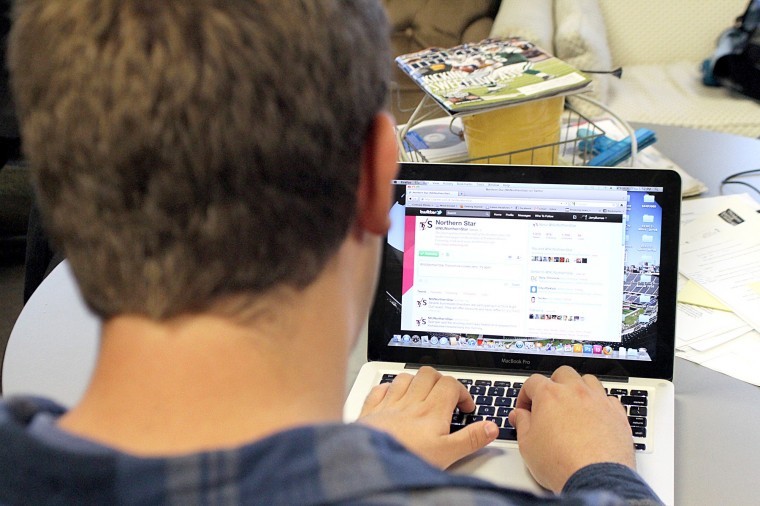Social media can help or hinder information flow about events around campus
Photo illustration – Social media sites such as Twitter are beneficial to students to get their news, but can be a hindrance to police investigations.
September 29, 2011
Social media websites can be both beneficial and a hindrance when providing information on events like Wednesday’s shooting.
Anna Kedyk, sophomore business administration major, heard about the shooting while on Facebook around noon Thursday.
“My friend lives in Neptune,” Kendyk said. “She heard the shots.”
NIU also passed along information via social media websites. NIU’s Twitter page tweeted around noon Thursday that a shooting occurred near the VCB, and that it was not a random event. NIU added a link to an NIUToday article on the shooting as well. NIU also posted on Facebook around 2 p.m. Thursday about the shooting, responding to a student who asked about it at around 1 a.m.
A social media update in the immediate hours after the shooting was thought unnecessary since it was an isolated incidence and did not pose a threat to the university, said Holly Nicholson, social media specialist at NIU’s Division of University Relations.
While social media websites may help students get information when it pertains to events like the shooting, it has an affect on how police forces do their jobs.
“It can be both a help and a hindrance,” said NIU Police Sgt. Alan Smith. “It can be a help as a way for information to get out faster.”
Smith said NIU police use its own website and Facebook for information, but also said at times the fast spread of information via social media websites can interfere with an investigation.
“Not everything out there [on social media websites] is true,” Smith said. “People may flood us with phone calls and hinder the investigation, and we need to assign someone to answer phones and do crowd control.”
Smith also said social media can sometimes cause people to get false ideas, especially about the safety of NIU.
“NIU is a safe place,” Smith said. “People put on their Twitter or Facebook about the shooting, but it was off-campus, not on NIU property. People look at NIU as not safe, but when a shooting happens in Chicago, their universities, like Roosevelt, are not listed as unsafe. But when it happens in DeKalb, it is attributed to the university.”
Nicholson sees a number of benefits in spreading news through social media.
“Social media users now have instant access to news which comes to them via Facebook and Twitter feeds,” Nicholson said. “People no longer have to search out news. Also, community members now have access to local news entities like never before – they can ask questions on a newspaper’s Facebook wall or send a tweet to a news organization’s official Twitter account when they can’t find the information they are looking for.”
Nicholson said a flaw of social media is unreliable posts.
“I would caution people to be wary of news information on social media,” Nicholson said. “Verify facts with a trusted source, and check the accuracy of rumors before reacting to or spreading them.”
Nicholson said even with that flaw, social media is a good way to get news to people.
“[Though] many news rumors are passed around on social media and many stories are shared in an incomplete or inaccurate state, social media users can look to their local news source for more information, and more reliable information,” Nicholson said. “As long as news organizations can adapt to the trend toward electronic media, they can preserve their audience and may be able to gain interest among demographics that they had difficulty reaching previously.”







